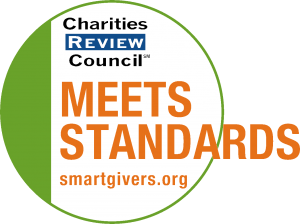Mission Statement
Guided by the Fairweather Model, Tasks Unlimited provides supported employment, housing, and mental health recovery services to create opportunities for people with mental illness so they can achieve their full potential.
Impact and Programs
Accomplishments
In 2022 Tasks Unlimited served 719 individuals, a 12% increase over 2021. Of the 719 individuals:
556 adults with a serious and persistent mental illness received one or more of mental health, vocational, or housing services.
163 people experiencing or at risk of homelessness received basic needs and connection to resources at our Northeast Outreach and Opportunity Center (NOOC), a 38% increase over the prior year. Nearly 2/3 of NOOC clients are people of color.
Tasks Unlimited has demonstrated that an emphasis on peer support, employment, and wraparound services increases overall stability and decreases barriers and the likelihood of needing hospitalization or other more intensive treatment services. Recent outcomes include:
96% of lodge residents and supported employment clients maintained stability and avoided any period of hospitalization over the year. 85% of clients report that their ability to manage mental health symptoms has improved since coming to Tasks. 82% of clients report more stable employment. Average job tenure of our janitorial services supported employment workers in 2022 was nearly 9 years.
Other highlights from 2022:
294 people received targeted case management, double the number 5 years ago.
91 individuals lived in one of our 17 Lodge residences, providing long-term, affordable housing in shared homes with peer and mental health support services.
83 people received vocational support and were connected with employment opportunities through our Jobs Training Program, placement or job retention services.
201 individuals received on the job mental health support in retaining employment, the majority in Tasks nonprofit janitorial services.
Current Goals
600 adults with a serious mental illness will receive one or more mental health, vocational, or housing services at Tasks Unlimited.
220 individuals who are experiencing or at risk of homelessness will receive basic needs and help linking to health, employment, shelter and housing resources at the NOOC drop-in center.
275 people will gain or maintain employment either in Tasks supported employment nonprofit janitorial services or in community employment.
After making our Jobs Training Program more flexible and client-centered, we expect JTP participants to rise from 40 in 2022 to 65 in 2023.
200 individuals will receive assistance to find or maintain housing, including 100 living in a lodge residence and 100 in housing of their choice in the community.
100 individuals will access resources and support at the new Tasks Resource Center, offering a range of employment, housing, mental health, and wellness resources, along with peer support and recreational activities, on a drop-in basis.
350 individuals will receive targeted case management, continuing our growth in this area with expansion to Ramsey County.
200 individuals will participate in wellness and art sessions facilitated by the Tasks Wellness Coordinator.
Establish relationships with employers to overcome reluctance to hire individuals with mental illness and connect our clients with jobs of their choice.
Continue to grow our new mental health counseling services, available to anyone in the community with or without insurance.
Community or Constituency Served
Tasks Unlimited serves adults age 18 or older with serious and persistent mental illness in the Twin Cities metro. In 2022, 46% of all clients were people of color. New clients are more diverse: in our Jobs Training Program, for instance, 49% of participants last year were people of color, primarily African American, and at our drop-in center, the Northeast Outreach and Opportunity Center (NOOC), 62% were of color.
Geographic Area Served
Twin Cities, primarily Hennepin, Dakota, and Ramsey Counties
